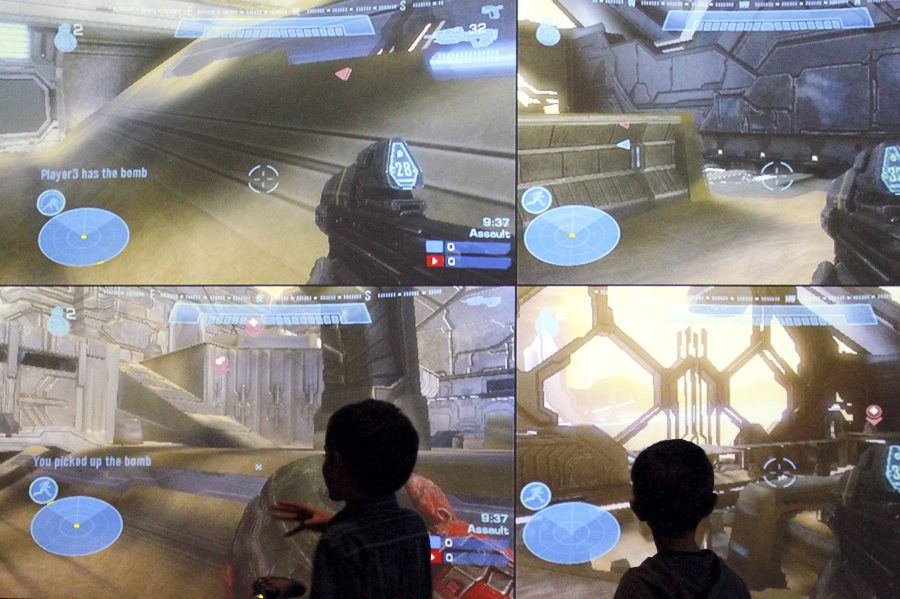Video gamers gathered at UT’s Applied Computational Engineering and Sciences Building on Wednesday evening to discuss every player’s dream — infinite resolution and zero latency. The conference, called “The Future of Video Games in Austin,” showcased innovations made by the University, local video game companies and big-name hardware makers including AMD, Dell and Microsoft, said Rob Turknett of the Texas Advanced Computing Center (TACC), which hosted the event.
UT began offering classes this year aimed at preparing students for the video game industry, said Turknett. Turknett said the event fit into that curriculum by “bringing the gaming industry together with UT.”
The event opened with industry figures speaking about their visions for the future of video games, said TACC spokesperson Faith Singer-Villalobos. Jon Jones of the development firm Smartist LLC, said that the future of gaming would be more flexible and nimble. Jones said the future of video games lies in “mercenary agencies of developers that would move nimbly from one project to another.” Radio-television-film professor Bruce Pennycook said he saw a shift from PC and console games to more “rapid turn-around casual games” on mobile devices.
Similarly, Mike McShaffry, director of product development of Red Fly Studio said the next generation of Microsoft’s Xbox would fail.
“I think people will be playing on these,” McShaffry said, waving his smartphone.
Computer science and radio-television-film sophomore Wilson Villegas said he hoped to use the event to network. He said he transferred to UT because of Austin’s video game industry.
He and computer science sophomore Andrew Sharp said they were certain they and other UT graduates would find jobs in video game development if they remained agile and independent.
“My friends are graduating without jobs and they’re not even worried about jobs,” Sharp said.
“They’re confident they can start their own startups.”
Industry veterans said those interested in video game development should be able to find careers.
“Things have really started to tilt in favor of small independent game developers,” said Dan Magaha, the executive producer of Seamless Entertainment.





















